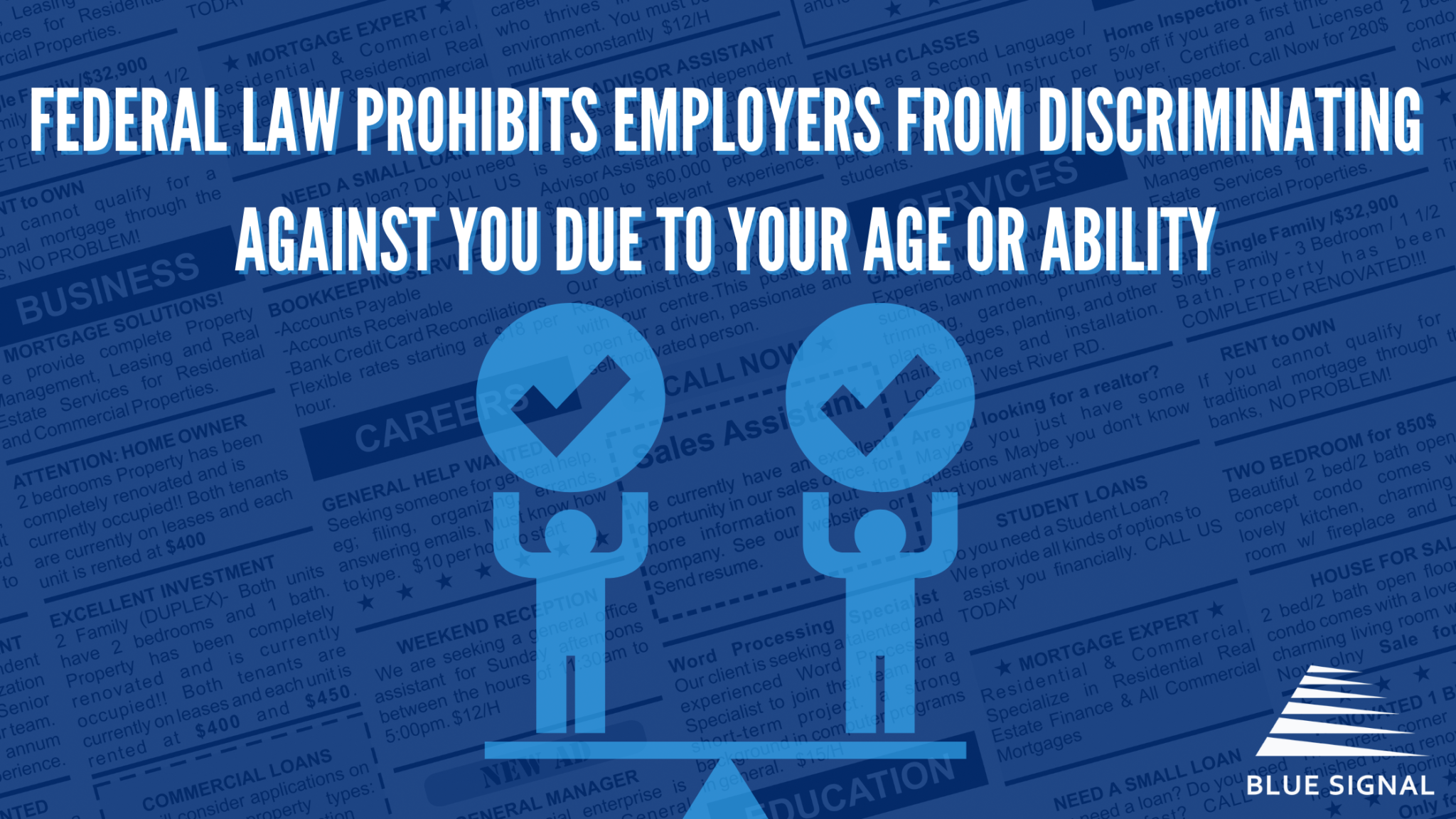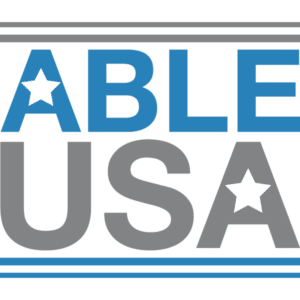If you find yourself looking for a new job while in retirement, you’re not alone. Many seniors are trading in leisure time for extra income, but finding a position after retiring can be overwhelming if you’re not sure where to start. If you are a senior living with a disability, the process can be even more challenging. To take the stress out of your job search, and make your re-entrance into the workforce feel well-informed, Blue Signal invites you to consider these important tips.
Update Your Resume
While self-employment options, like owning your own business, may be the most flexible employment option, it may not be the most convenient. For many seniors looking for post-retirement employment, a part-time position with an established company may be their best bet. Companies like Liberty Tax Service, H&M, and TJX (whom you know as the conglomerate of Marshalls, HomeGoods, and T.J. Maxx) are top-rated when it comes to hiring those 65 and older. However, to get interviews and snag one of those positions you’ll need to update your resume.
Resumes help make the first impression on employers, so you need to make sure yours stands out from the stack. If it’s been a while since you’ve updated your resume, using an online resume tool can help you choose the best design and layout to grab the attention of potential employers. Nevertheless, updating your resume doesn’t have to be an overwhelming task. To make sure your resume stands out, keep it simple by creating a one-page highlight reel of your previous employment, emphasizing any metrics or measurable accomplishments. Then, pair your updated resume with a cover letter so you can address employment gaps due to your retirement or other life events. An updated resume and cover letter will give you a strong start to your job search.
Know Where to Look for Senior Jobs
Crafting a powerhouse resume and cover letter can help you land a job in retirement, but you have to find open positions before you can send your updated materials to potential employers. If you have a smartphone, be sure to download job seeker apps that will allow you to browse open positions from anywhere. LinkedIn is a great tool for applicants to use, and this social media site can also help you connect with recruiters and hiring managers. Be sure to follow companies like Blue Signal on LinkedIn to stay up to date with their announcements and tips, helping you continually learn about best practices in the digital job searching space. These recruiting firms specialize in finding the right candidate for the right job, and often post best practices for job seekers on their social media.
Of course, to make the most of your job search, it helps to know which companies may be looking for employable seniors. From Pfizer to Wells Fargo to Amazon, there are quite a few reputable companies actively seeking candidates who are senior and wiser for a variety of positions.
Understand Your Rights and Legal Protections
If you are a senior, you should be armed with the basics needed to find a perfect post-retirement job. Since you are looking for a position as a senior with a disability, you should also be knowledgeable of the labor laws that apply to you. Federal laws prohibit employers from discriminating against you due to your age. This law only applies to employees or potential employees who are over the age of 40, but a potential employer should never ask about your age in an interview. When job searching, look for companies that champion diversity and inclusion efforts; like at Blue Signal, where they refer all candidates on the basis on qualification rather than age or ability.
In addition to legal age protection as a senior, you are also subject to protections for disabilities. Much like age discrimination, businesses cannot base employment decisions on your disability alone. If you’re hired, they must make reasonable accommodations to make your work environment more accommodating to your disability. Understanding your rights and legal protections will benefit you greatly when looking for a job in retirement.

Consider Working for Yourself
When job searching, it’s important to consider if working for someone else is your best option. Many seniors who are living with disabilities and looking for extra income have found it easier to pursue entrepreneurship instead of traditional employment. One of the most lucrative, low-risk options for working on your own is to start an e-commerce business. You can even begin your small business from home, which can be a bonus if you have limited mobility. Use this ecommerce startup guide from ecommerCEO to learn more about whether this kind of business is right for you.
Of course, e-commerce is not your only viable option. There are many small businesses that can work well for seniors, from bookkeeping services to freelance writing or even operating your own food truck. Best of all, launching a business has never been easier, especially if you take advantage of online business formation packages that take a lot of guesswork out of the process. In most cases, you can have your business registered and setup in as few as five steps.
Conclusion
Whether you need extra income for medical expenses or want more to do during the day, working in retirement can be a smart choice. Finding a job shouldn’t add more stress to your life, so be sure to follow the tips above to make your search a simpler process. There are resources at your disposal if you know where to look. Better yet, there are people out there who want to help you through this process. If you need some extra help, you can reach out to Blue Signal to work with one of their expert recruiters. Above all, try to find work that will make you happy while you make more money in retirement.
More about Patrick Young of AbleUSA
 Patrick Young is an educator and activist. He believes people with disabilities must live within a unique set of circumstances--the outside world often either underestimates them or ignores their needs altogether. He created AbleUSA to offer helpful resources to people with disabilities and to provide advice on navigating various aspects of life as a person with disabilities.
Patrick Young is an educator and activist. He believes people with disabilities must live within a unique set of circumstances--the outside world often either underestimates them or ignores their needs altogether. He created AbleUSA to offer helpful resources to people with disabilities and to provide advice on navigating various aspects of life as a person with disabilities.
